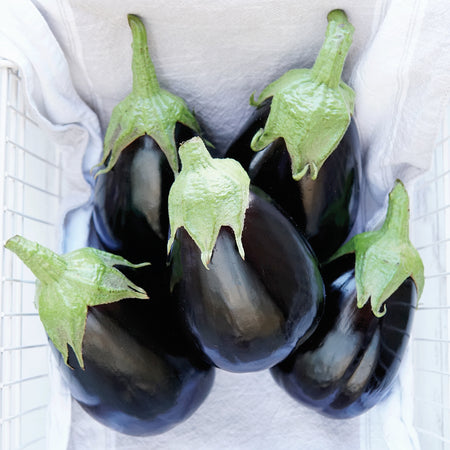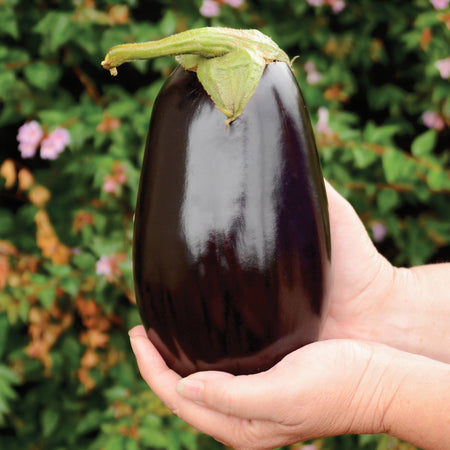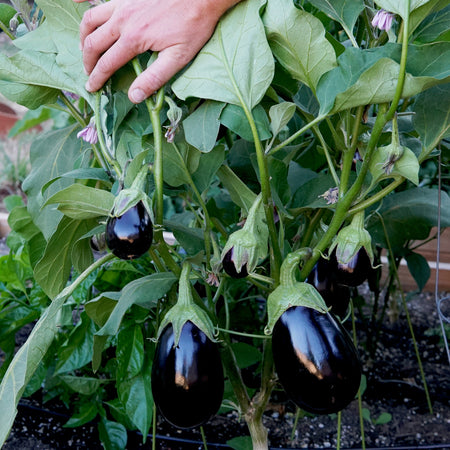ROLANDIA
Product Description:
| Soil Temp for Germ | 75–90°F |
| Seed Depth | ¼" |
| Days to Emergence | 5–17 |
| Soil Temp for Transp | 65–85°F |
| Plant Spacing | 12–18" |
| Row Spacing | 2–3' |
| Fertilizer Needs | High |
| Minimum Germination | 70% |
| Seeds per Gram | ≈ 200 |
| Seed Life | 2 years |
Solanum melongena Although the eggplant is a staple in cultures worldwide, this culinary oddity is ignored by far too many American gardeners and deserves a spot in the garden. Eggplants are remarkably versatile, taking on the flavor of whatever they are cooked with. They are very low in calories and fat, high in fiber, a good source of an assortment of minerals, and have a very low glycemic index.
Days to maturity are calculated from transplant date.
Culture
• Eggplants are heat-loving plants that require a long growing season
• Plants grow best in fertile, well-drained soil; raised beds and black mulch provide extra warmth in the spring
• Use row cover until first blooms appear
• Optimum growth occurs with day temp. of 80-90°F and night temp. of 70+°F
Direct Sowing
• Not recommended
Transplanting
• Sow indoors 8-10 weeks prior to anticipated transplant date
• When plants have their second set of true leaves, up-pot them into 3-4 inch pots, 1 per container
• Transplant hardened-off plants when night temperatures are above 50°F
• Use 1/2 cup TSC's Complete fertilizer and a shovelful of compost around each plant
Insects & Diseases
• Common insects: Flea beetles, aphids, and potato beetles
• Insect control: Pyrethrin and row covers
• Common diseases: Verticillium and Fusarium wilts
• Disease prevention: 3-4 year crop rotation
Harvest & Storage
• Harvest when skin is still smooth and shiny
• Over mature fruit will be soft and seed will begin to darken
• Fruit can be held 7-10 days at 45-55°F and 90-95% humidity
KEY TO EGGPLANT DISEASE RESISTANCE AND TOLERANCE
B | Bacterial Wilt
BO | Botrytis, Gray Mold
ToMV | Tomato Mosaic Virus






